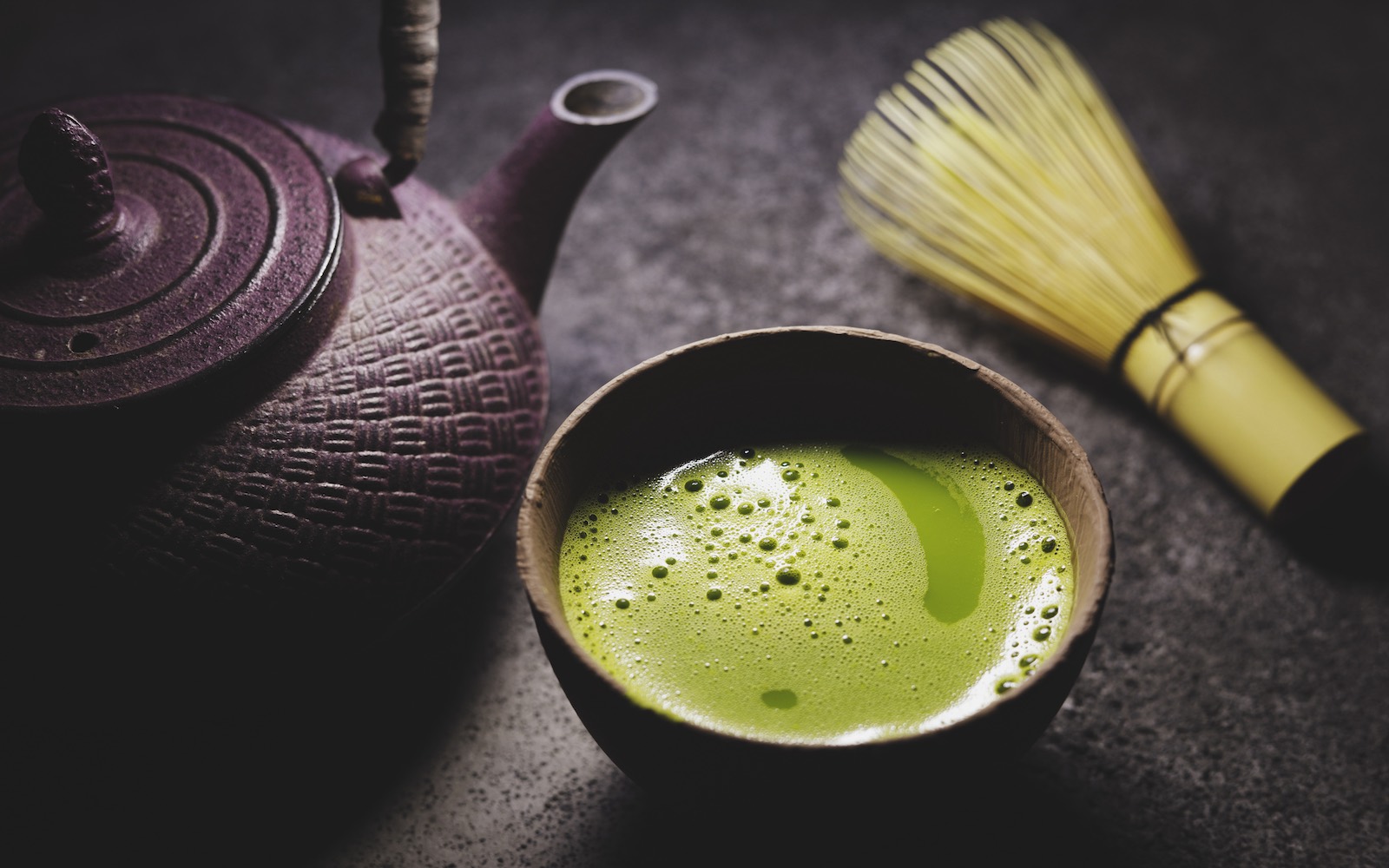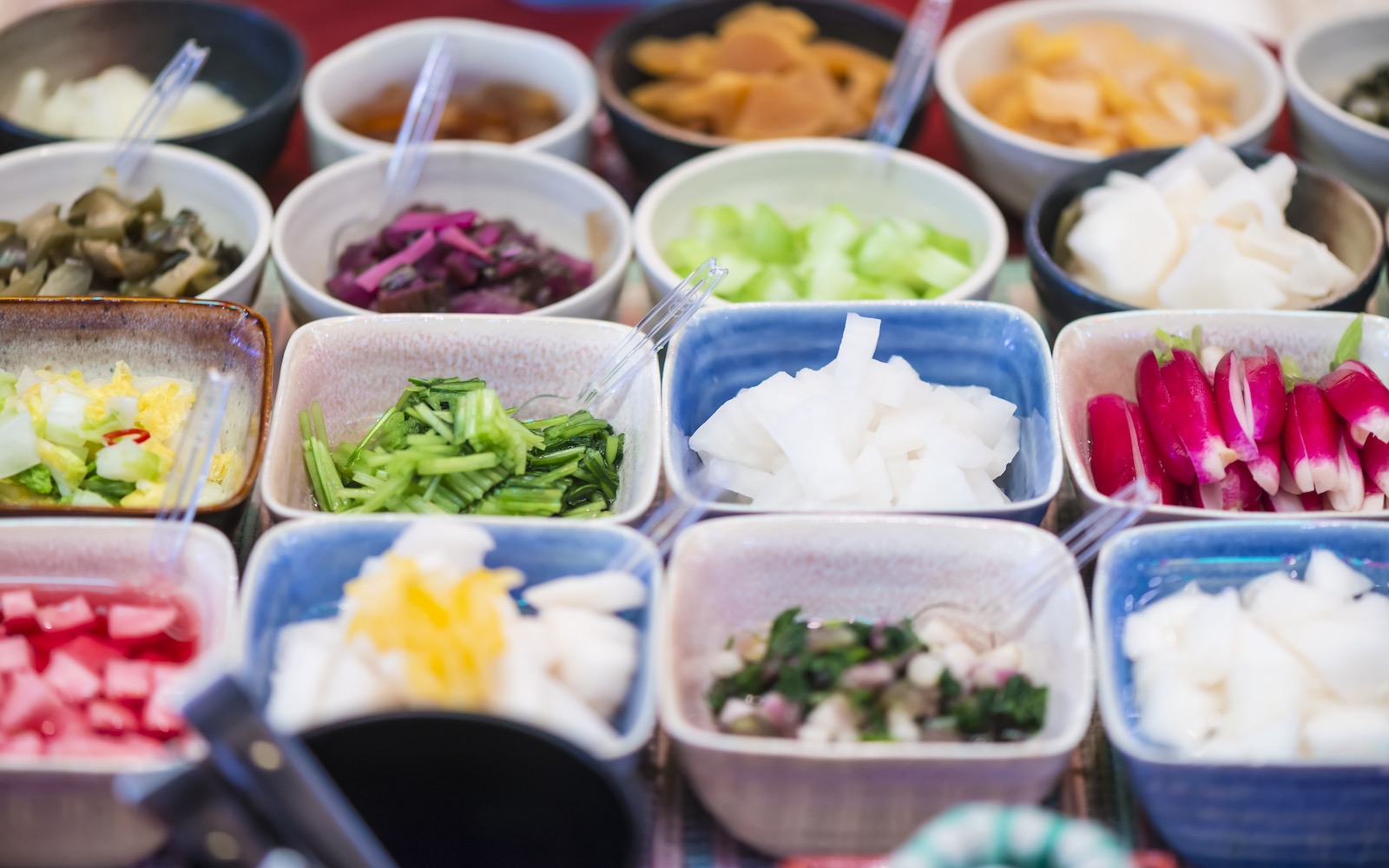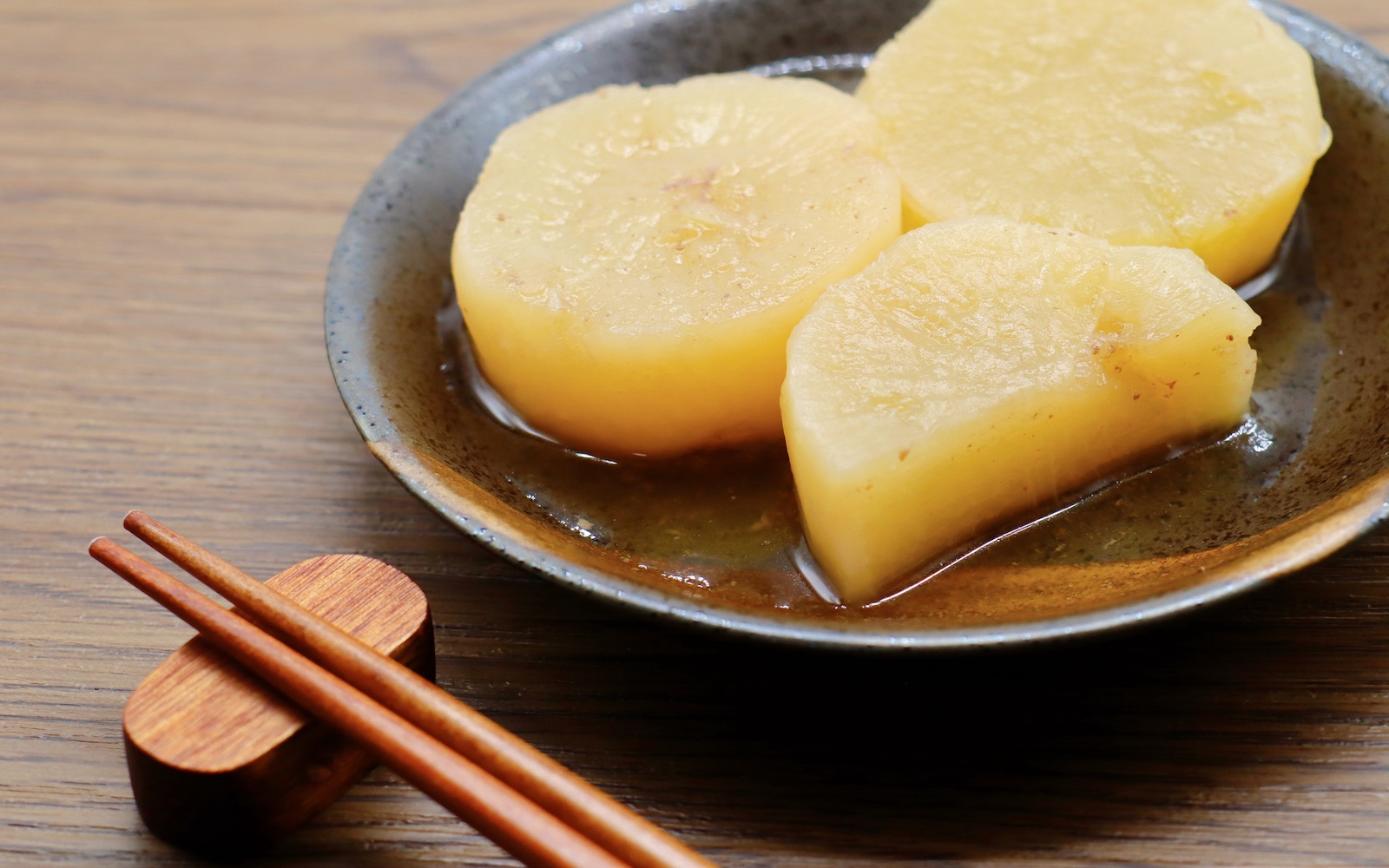With Japan having one of the highest life expectancies in the world, we need to start looking closer at the Japanese diet. Filled with protein-rich vegetables, fresh fish, calming teas and the glorious soybean, let’s see what superpowers Japanese food has in store.
What is a superfood?
No, it isn’t Captain America’s lunch. “Superfoods” are fruits, meats, grains and vegetables filled with “the healthy stuff.” That means plenty of antioxidants, vitamins, fiber and fatty acids to boost our bodies.
1. Matcha

Matcha, or Japanese powdered green tea, tops most superfood lists due to its plethora of benefits. Matcha has a high natural caffeine content plus an array of other nutritional benefits, making it an ideal replacement for your morning coffee.
A cup of contains catechin antioxidants that ward off cell damage and prevent viruses. In addition, some studies have observed a direct correlation between drinking green tea and improved liver health. Matcha also contains theanine which helps you relax and improves your mental well-being.
Though, I don’t think your matcha-flavored ice cream counts as a healthy supplement.
2. Tsukemono

Tsukemono (pickled things) are found on many restaurant tables in Japan, tucked away near the soy sauce and spices. Bright pink gari (pickled ginger) is a staple of sushi restaurants and is not just great for cleansing the palette but also for cleansing the gut.
With a nice helping of potassium, which keeps blood pressure steady, and generous amount of fiber, tsukemono has been used as a digestive aid for centuries. Try fermented pickles to enhance your immune system further. Umeboshi (pickled plum) has long been lauded as a cure for constipation, perhaps due to its citric acid content, which helps to “move things along.”
3. Daikon

While daikon (Japanese radish) is generally considered mostly water, their almost non-existent calories are great for those looking to lose a few pounds. Native to China and Japan, daikon is jam-packed with vitamin C, which has added advantages of strengthening the immune system.
Daikon also contains folate, which promotes red blood cell production and is recommended for those in early pregnancy. You can enjoy it raw or chop it into curries for an added improvement.
4. Miso
Click here to read more.
- External Link
- https://gaijinpot.com/
 Take our user survey and make your voice heard.
Take our user survey and make your voice heard.




9 Comments
Login to comment
Mr Kipling
There is no such thing as a "super food". There is just food and marketing.
Speed
From this list I basically only eat miso and sashimi. As a kid my family seved the others but not too into them.
cleo
It doesn’t really matter how ‘super’ a food is, if it’s unpalatable; if it doesn’t taste good, it isn’t going to do you much good.
Yuzu, miso, tofu, zakkoku-genmai are regularly on the menu chez nous. They’re tasty and can be used in all kinds of ways. O-tsukemono occasionally, not matcha coz coffee or tea is always better, not natto because it’s totally vile. Daikon I can take or leave, Mr Cleo always leaves it so not worth preparing it just for one.
Soba really needs dashi for taste, and that’s made from dead fish, so no thank you. And sashimi is of course dead fish, so No.
sual
I like all of those except the natto.
Natto or shiokara are the two things I never want to try again.
BackpackingNepal
Before (few years ago), i believed on these words "Superfood", "Organic", "Premium", Now i don't fall for it. It doesn't benefit if you are not satisfied with your lifestyle. You need to change the direction of your life, Not with food.
albaleo
I'm a big daikon fan. Not mentioned in the article, but daikon is slightly alkaline. I've always assumed that's why it's frequently served with sashimi which is generally acidic. It reduces the chances of heartburn.
(I'm also a natto fan.)
Pukey2
Looking at the top photo, it seems they're mostly loaded with salt.
Yuuju
which is death to those with autoimmune disorders xD
green tea is glorious but harmful coffeine ruins adrenals (for those who have sleeping disorders and others)
but if you are relatively healthy, I agree, those all are glorious and good for the body.